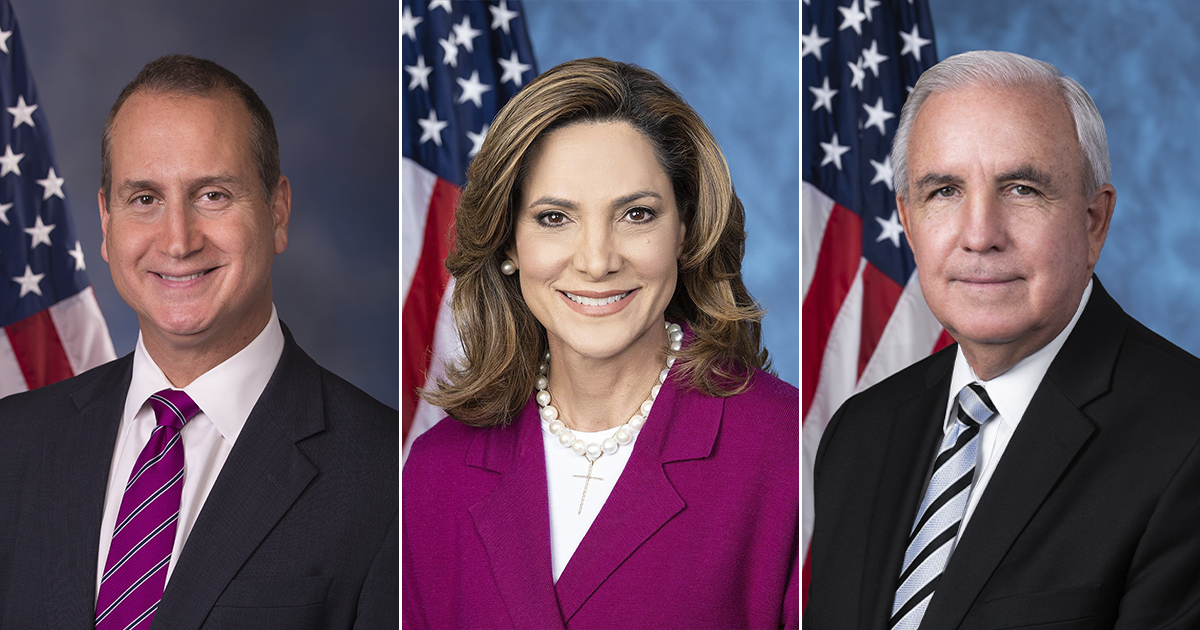Five American politicians, four of whom have Cuban roots, have criticized President Joe Biden's recent decision to remove Cuba from the list of countries not cooperating with terrorism. The members of the U.S. Congress—Mario Díaz-Balart, María Elvira Salazar, and Carlos Giménez, along with Senators Marco Rubio and Rick Scott—all Republican representatives from Florida, condemned the Biden administration for excluding the Cuban regime from the list, a decision made by the State Department this week.
"Once again, the Biden administration has made a foreign policy mistake that undermines our national security interests. The flimsy rationale behind refusing to designate anti-American Cuba as a 'non-cooperating country' is as flawed as the rest of their foreign policy approach," Díaz-Balart stated in a release. "Any hint of legitimacy given to the terrorist regime in Cuba only strengthens it and our other enemies, putting the American people at risk," he added.
For María Elvira Salazar, the move undoubtedly signals that the White House is paving the way to remove Cuba from the list of state sponsors of terrorism. "How is it possible that a dictatorship that finances terrorism in Latin America, supports Hamas, and harbors international terrorists on its soil now 'cooperates' with the U.S. on anti-terrorism?" she questioned.
Carlos Giménez described Biden's concession to the Castro regime as "pathetic," "unjustified," and "wrong." "Just last week, the title of Raúl Castro and Miguel Díaz-Canel was in Moscow meeting with Putin and recruiting mercenaries to fight in the illegal and genocidal invasion of Ukraine," he recalled.
Senator Marco Rubio asserted that President Biden has made it clear he wants to remove the Cuban dictatorship from the list of state sponsors of terrorism. "The criminal and illegitimate regime in Havana supports foreign terrorist organizations in Colombia and harbors ETA terrorists as well as fugitives wanted by U.S. courts," Rubio emphasized.
Lastly, Senator Rick Scott warned that it is a "sick irony" for Biden to appease the Castro regime in exchange for empty promises from the Mexican government, controlled by cartels, to crack down on illegal immigration. "The same regimes fueling the massive invasion of our southern border, which Biden has encouraged and permitted with his appeasement and failed open-border policies, will continue, allowing more terrorists, dangerous criminals, and deadly drugs into the United States, threatening our national security and killing American citizens," he stressed.
Last Wednesday, an official statement signed by Secretary of State Antony Blinken indicated that the conditions that previously placed Cuba in the category of countries not cooperating with terrorism have changed. Four other countries remain on the list: North Korea, Iran, Syria, and Venezuela. The removal of Cuba could be interpreted as a first step by the Washington government to also take the Caribbean nation off the list of State Sponsors of Terrorism. The State Department clarified that both lists are managed independently.
Implications of Removing Cuba from the Terrorism Non-Cooperation List
The following questions and answers provide further insights into the controversy and implications surrounding the decision to remove Cuba from the list of countries not cooperating with terrorism.
Why did President Biden decide to remove Cuba from the list?
President Biden's administration, through Secretary of State Antony Blinken, indicated that the conditions which previously placed Cuba on the list have changed, although specific details were not provided.
What are the potential risks of removing Cuba from the list?
Critics argue that removing Cuba from the list could embolden the regime and other enemies, posing a risk to American national security by potentially allowing terrorists and dangerous criminals easier access to the country.
How might this decision affect U.S.-Cuba relations?
The decision could be seen as a step towards normalizing relations between the U.S. and Cuba, possibly leading to further diplomatic and economic engagement, although this remains speculative.
